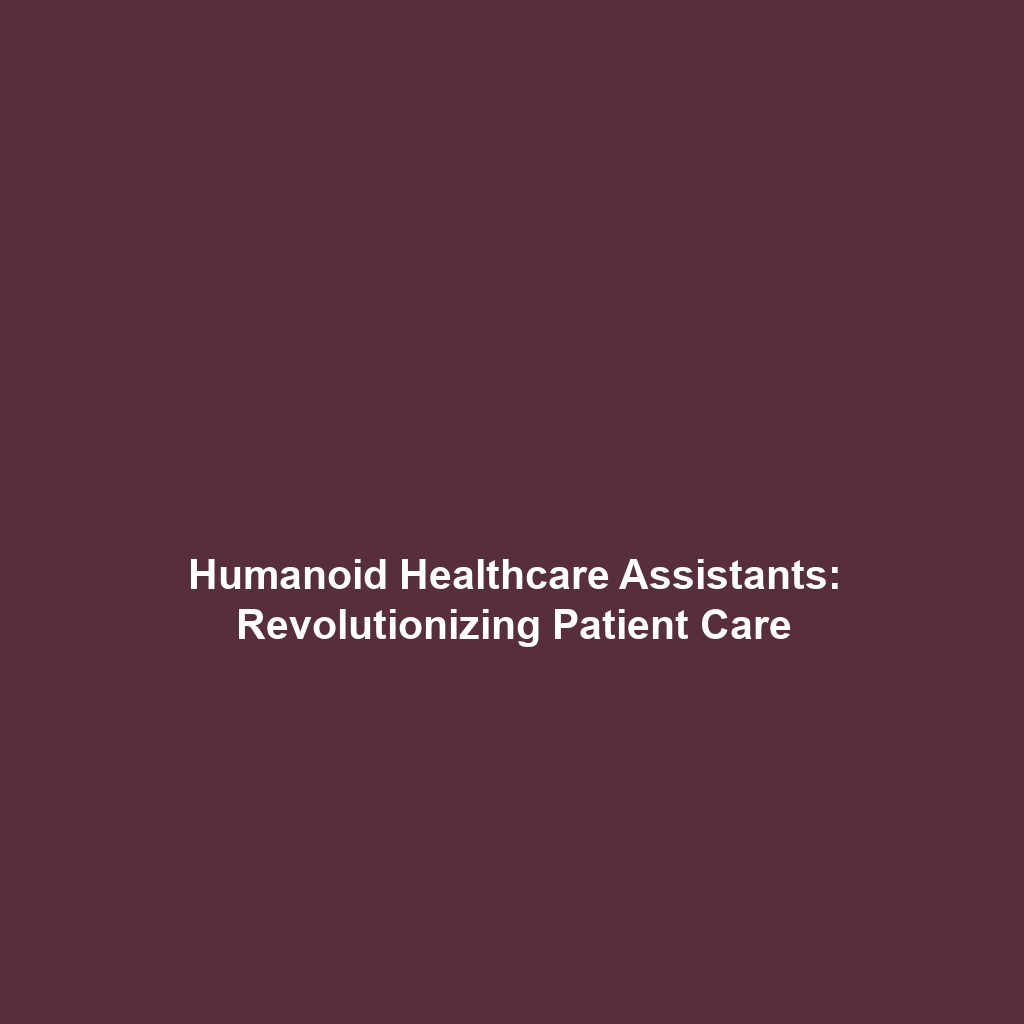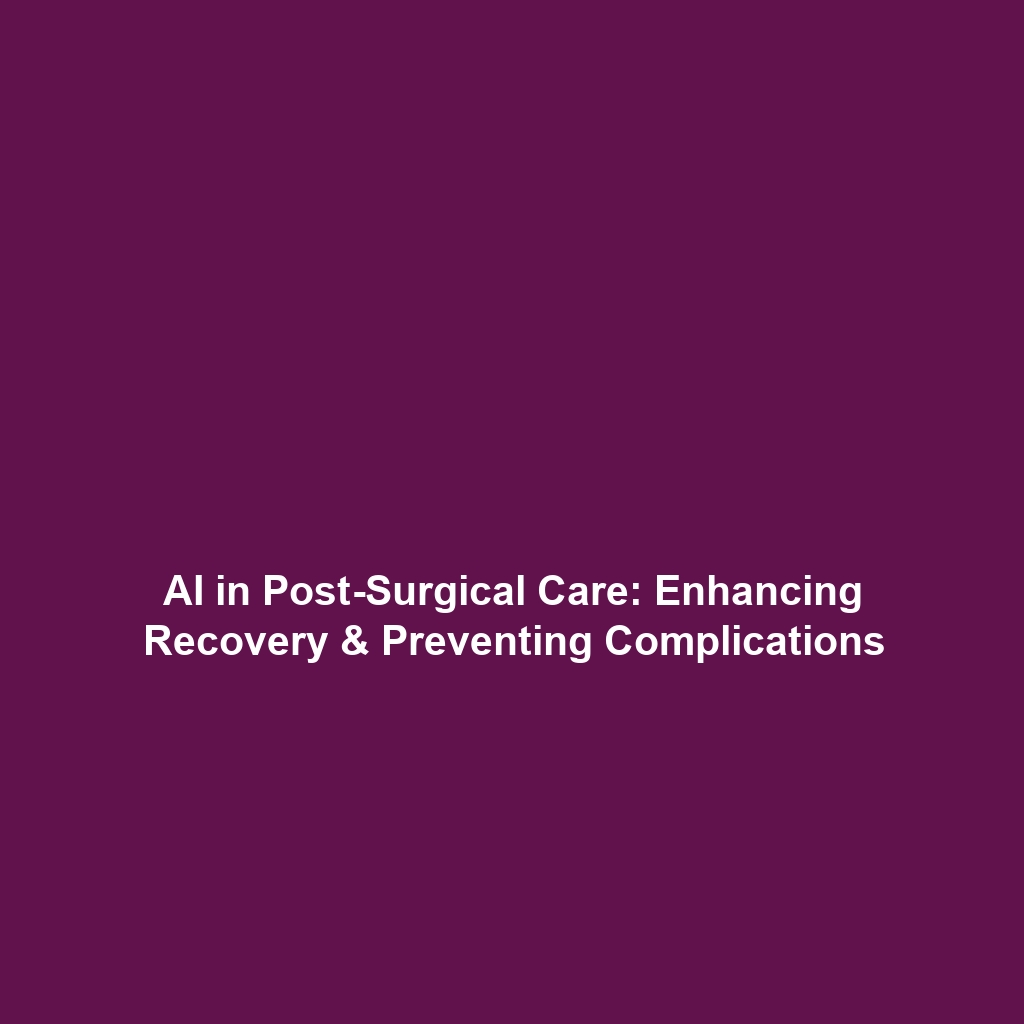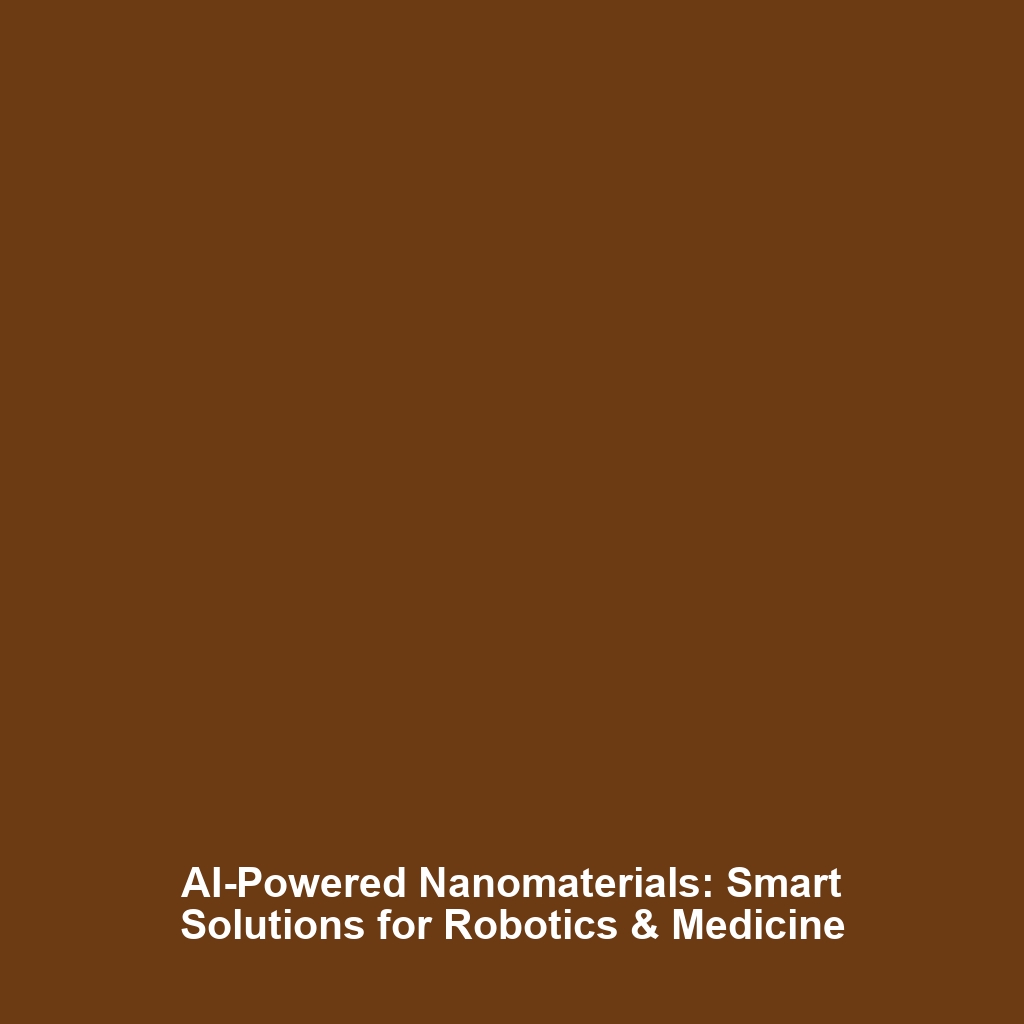Healthcare Assistants: Humanoids Aiding Healthcare Professionals
The integration of humanoid robots into healthcare has emerged as a groundbreaking advancement, leading to the development of healthcare assistants that support healthcare professionals in delivering enhanced patient care. These robots, designed to interact with both patients and medical staff, represent a significant shift in the roles that technology can play within medical environments. As healthcare demands rise globally, the use of humanoid assistants serves not only to alleviate workloads but also to improve the quality of care provided.
Key Concepts
Healthcare assistants in the form of humanoid robots operate within a framework of several key principles that define their purpose and functionality:
- Human-Robot Interaction: The design focuses on making humanoids user-friendly and capable of understanding human emotions and responses.
- Automation of Routine Tasks: Humanoids can perform administrative and repetitive tasks, allowing healthcare professionals to focus on critical care.
- Telepresence Capabilities: Many humanoids utilize telecommunication features to facilitate remote consultations, enhancing healthcare accessibility.
Applications and Real-World Uses
Humanoid robots are making significant contributions in various aspects of healthcare. Here are some notable applications:
- Patient Monitoring: Humanoid robots can monitor patients’ vital signs and alert healthcare professionals when intervention is needed, demonstrating how healthcare assistants are used in medical settings.
- Rehabilitation Support: These robots assist patients in physical rehabilitation through guided exercises and companionship, showcasing the practical uses of humanoid technology.
- Child Life Specialists: Humanoids engaging with pediatric patients help ease anxiety and create a positive hospital experience, highlighting the versatility of healthcare robots.
Current Challenges
Despite the promising advancements of humanoid robots in healthcare, several challenges remain:
- Integration with Existing Systems: Compatibility issues can arise when implementing humanoid assistants alongside traditional healthcare technologies.
- Cost of Development and Maintenance: The high costs associated with developing, maintaining, and upgrading humanoid robots pose a challenge to widespread adoption.
- Regulatory Hurdles: Ethical and regulatory standards for humanoid robots in healthcare are still evolving, impacting their deployment.
Future Research and Innovations
The future of healthcare assistants as humanoids looks promising, with various innovations on the horizon:
- Advanced AI Capabilities: Future humanoid robots will likely possess enhanced artificial intelligence, improving their ability to understand and respond to complex human behaviors.
- Improved Mobility and Dexterity: Next-generation humanoids may feature advanced robotics that enable more natural movement and interaction in healthcare settings.
- Personalized Patient Care: Research may focus on tailoring robot interactions to meet specific patient needs, providing a more individualized healthcare experience.
Conclusion
In summary, healthcare assistants in the form of humanoid robots represent a crucial evolution in supporting healthcare professionals. As technologies continue to advance, these robots will play an increasingly significant role in improving efficiency and patient care within the healthcare sector. For further exploration on the impact of robotics in healthcare, visit our sections on robotic technologies and future innovations in healthcare.



